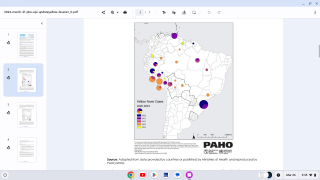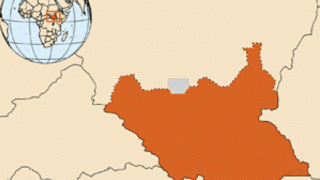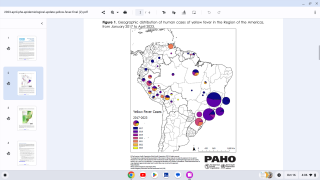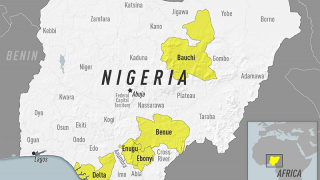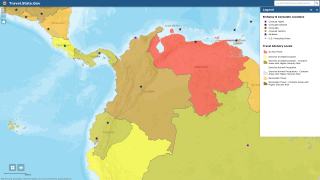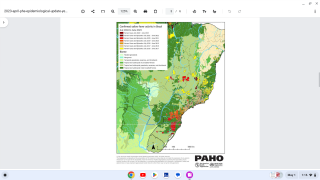Brazil’s Yellow Fever Challenges Continue Regardless of Weather

Although yellow fever is not a contagious disease, the diffusion pattern described by Brazilian researchers in a new study is known as “spread by contagion.’
This term refers to the virus transmission through contiguous and nearby areas.
Yellow fever is a non-contagious viral disease with two transmission cycles, sylvatic (in wild animals) and urban, between people.
Sylvatic yellow fever circulates among monkeys, and in Brazil, it is also transmitted by mosquitoes that bite an infected monkey who then infect others.
Until 1999, sylvatic yellow fever was confined to the North and parts of Central Brazil, with sporadic cases in the Southeast.
According to an article recently published in Scientific Reports, the latest sylvatic yellow fever outbreak in São Paulo, Brazil, between 2016 and 2019, established a new urban pattern.
Urban yellow fever cases are transmitted by the mosquito Aedes aegypti and circulate among humans.
“We ran a very high risk of seeing urban yellow fever reintroduced in cities near the state capital. An urban epidemic would have had severe effects and would have been a major setback,” stated Francisco Chiaravalloti Neto, a professor in the Department of Epidemiology of the University of São Paulo’s School of Public Health (FSP-USP), and last author of the article.
“Studies have shown that waves of yellow fever start in the Amazon, spread via forest corridors to Tocantins state, Goiás state, and the Minas Triangle in Southeast Brazil, and reach São Paulo, moving southwards along the coast.
This transmission wave has been extended further south into the Rio Grande do Sul state bordering Uruguay.
Between 2016 and 2019, 648 human yellow fever cases were confirmed in the state, with 230 deaths.
And the disease spread to places where it had never been reported before …. suggesting several hypotheses.
“The explanation that makes the most sense has to do with warmer winters,” concluded Pinter.
“We ran a very high risk of seeing urban yellow fever reintroduced in cities near the state capital.”
“An urban epidemic would have had very serious effects and would have been a major setback.”
The vaccination strategy followed by São Paulo’s Health Department is to immunize the city at risk as well as its neighbors.
“But when the disease reached Campinas, the state immunization division relinquished this strategy, which would have required vaccination of the city’s entire population as well as those of nearby cities.”
According to Pinter, when vaccination programs were proposed, the rationale was that the virus was believed to be spreading only sylvatically, and diffusion would be territorial contiguity because the insects do not fly far.
“In the article, we confirm that they didn’t, showing that transmission indeed occurred only among mosquitoes and non-human primates.”
“Humans were sometimes infected but didn’t transmit the disease, and transmission didn’t occur in cities.”
“If humans had participated in transmission, they would have been infected in big cities, and transmission would have jumped from one location to another.”
“On the contrary, we found that the virus spread in small cities by territorial contiguity.”
Fortunately, there is a yellow fever vaccine available, which Brazil has produced since 1937. It is offered by the national health service and provides lifelong protection.
“Our advice to the public is to take the vaccine,” all three authors agree.
In the U.S., the YF-Vax vaccine has become available in mid-2021. It is available in most travel vaccine clinics and pharmacies.
The Stamaril vaccine is available in most countries.
The study was supported by the São Paulo Research Foundation, a public institution. No conflicts of interest were disclosed.
Vax-Before-Travel publishes fact-checked research-based travel vaccine news.
Our Trust Standards: Medical Advisory Committee




